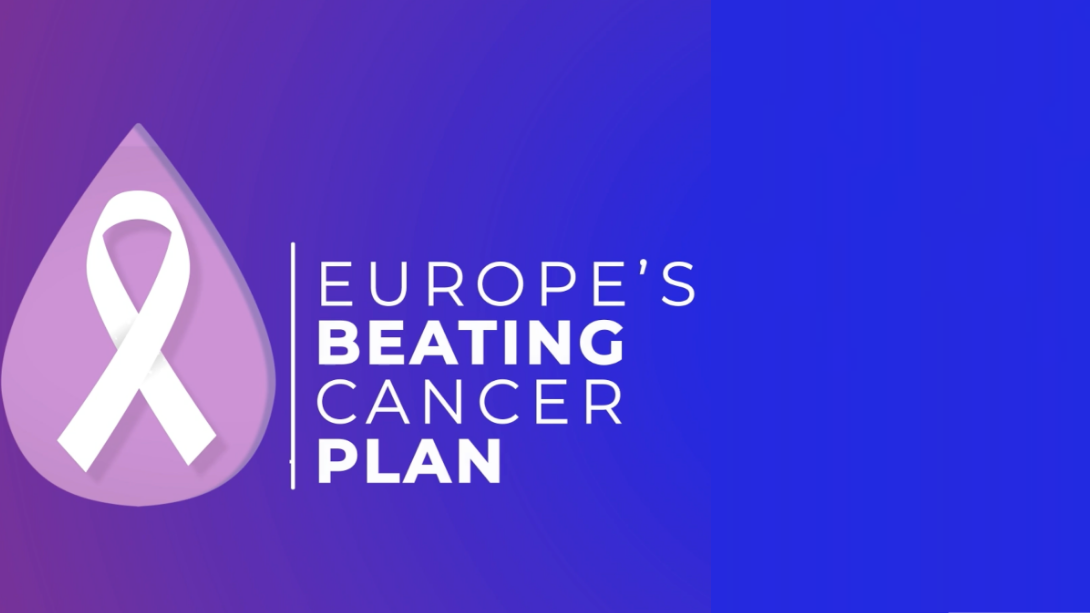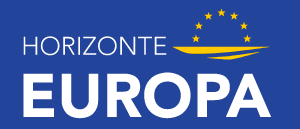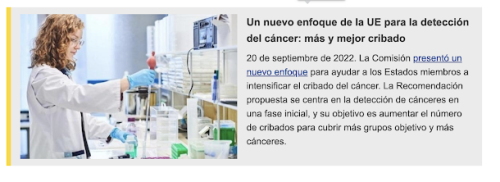
" Horizon Europe includes among its main innovations the launch of Missions as a new way to implement R&D&I with a social and economic impact in areas of interest to the EU and its citizens. These missions are defined as a portfolio of interdisciplinary actions based on R&D&I, aimed at achieving a bold and inspiring, yet quantifiable, goal that has a major impact on society ."

"The European Cancer Plan represents a political commitment to reverse the trend in the fight against cancer and is a further step towards a strong European Health Union and a safer, better prepared and more resilient Union."
Bilbomática actively participates in the fight against cancer. Our LUCIA project is part of a group of five projects that received funding from the European Commission through the Horizon Europe program (HORIZON-MISS-2021-CANCER-02-03) to work towards the objective of the Cancer Mission program.
GREAT: Understanding gene environment interaction in alcohol-related hepatocellular carcinoma
" Alcohol-related hepatocellular carcinoma (ALD-HCC) is, in Europe, the leading cause of liver cancer (2nd most common cause of cancer-related death worldwide, affecting both men and women). ALD-HCC has a median 5-year survival rate of 15%. Yet, the prognosis is driven by the tumor stage, with curative options providing a 5-year survival exceeding 70% for early-stage HCC (<20% of cases). Therefore, interventions aiming to improve prevention and early ALD-HCC results from the interplay between environmental determinants and genetic variations. However, their role on alcohol-related liver carcinogenesis needs clarification and the genetic architecture of ALD-HCC remains mostly unknown. single-cell and spatial multi-omics, artificial intelligence (AI) and communication and dissemination capacities. Our aim is to 1) portray genetic and environmental determinants promoting ALD-HCC; 2) evaluate how they interact at cellular level in human samples and preclinical models to obtain novel insights into liver carcinogenesis, and identify chemopreventive targets; and 3) assess how these determinants modulate the ALD-HCC risk in prospective cohorts of patients included in HCC surveillance programs. Environmental factors will be comprehensively characterized in an ongoing clinical trial designed to evaluate alternative methods for early-stage HCC detection. Finally, AI models, reaching the minimal viable product stage by the end of GENIAL, will be used to integrate genetic and non-genetic information (including digital imaging) to develop novel cost-effective strategies towards prevention and early-stage detection of ALD-HCC in at-risk individuals ."
ELMUMY: Elucidation of risk factors and health determinants associated with progression of monoclonal gammopathies to multiple myeloma
" Multiple Myeloma is a chronic malignancy characterized by slow progression and recurrences. Currently there is no effective cure since eventually the disease develops resistance to all the available therapeutic approaches. Although recent advances have expanded our understanding of the cellular functions associated with health to disease transition, recurrence and response to therapy, critical aspects of this complex pathology remain to be elucidated.
Application of omics technologies, and bioinformatics approaches on highly annotated samples obtained from all informative states (monoclonal gammopathy of undetermined significance [MGUS], smoldering MM [sMM], active MM [MM]) could identify biological pathways and molecules responsible for the onset, progression and resistance to therapy of Multiple Myeloma. In parallel, particular emphasis will be given to elucidating the health determinants and risk factors associated with progression to active MM from MGUS/sMM by using extensive demographic, lifestyle and exposure datasets.
MGUS is present in 3-5% of the aging European population and every year, 1% progress to incurable MM that imposes a significant burden on EU societies and health systems. Thus, the best chances of curing MM may be in preventing its progression in the first place. Furthermore, there is need of experimental models that recapitulate myeloma progression.
We propose an interdisciplinary approach bringing together clinicians and researchers aiming to integrate epidemiological, clinical and experimental datasets in order to create a molecular model of cellular processes associated with the onset of active MM and response to therapy. The proposed systems medicine approach could yield clinically actionable molecular features that could improve MM patient management. Furthermore, the integration of lifestyle, clinical and omics information will provide specific profiles for each patient allowing personalized diagnosis, prevention, and therapeutic approaches. "
DISCERN: Discovering the causes of three poorly understood cancers in Europe (renal, pancreatic and colorectal)
" The overall goal of DISCERN is to understand the causes of three poorly understood cancers in Europe; renal, pancreatic and colorectal cancer, and help to explain their geographical distribution, including their high incidence in central and eastern Europe. This will be achieved by combining large-scale European biorepositories comprising population-based cohorts and tumor case-series with state-of-the-art molecular profiling techniques and machine learning approaches. In particular, DISCERN will identify potential new causal risk factors for the three cancers using novel exposomics and proteomics scans, as well detailed geospatial and environmental exposure information from 16 large-scale epidemiological cohorts including almost 900,000 individuals. It will also explore biological mechanisms on how these risk factors are potentially causing these cancer types with a focus on promoting factors in normal tissues using deep sequencing, single cell multi-omics and spatial proteomics. pancreatic 3D organoids. The results from DISCERN will be disseminated to citizens, patients and policy makers through collaborating patient and participating organizations. DISCERN will provide the critical evidence base required to develop new prevention strategies to tackle the growing burden of renal, pancreatic and colorectal cancer in Europe. "
MELCAYA: Novel health care strategies for melanoma in children, adolescents and young adults
" In childhood, adolescence and young adults (CAYA), melanoma is under-studied and non-existing tailored clinical guidelines and standardized approaches lead to a very low diagnostic accuracy. The MELCAYA project aims to understand risk factors and determinants of melanoma to improve the prevention, diagnosis and prognosis of melanomas in CAYAs through a strong international consortium with experts from 10 countries in different disciplines (eg oncology, paediatrics, ethics, policy making), and sectors (eg academic centers, SMEs, hospitals, patient associations). CAYA. 3) Moreover, the validation of minimally and non-invasive disruptive tools based on artificial intelligence and volatilomics detection from exhaled breath and skin will lead to earlier detection and more accurate prognosis of melanoma in CAYA. 4) Finally, through the evidence gathered, MELCAYA will design and implement public health strategies and will actively involve patients and the general population. The results of MELCAYA will maximize its impact by making its data and results accessible and re-usable through integration into UNCAN.eu. "
The LUCIA project receives funding from the European Union's Horizon Europe research and innovation programme under grant agreement 101096473 .

